Research
We invite you to browse through a sample of recent publications by Global and Comparative Literature faculty:
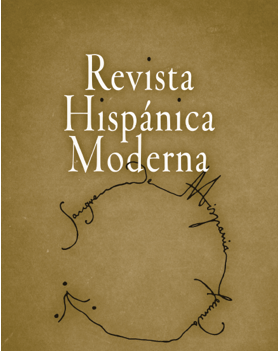
Francomano, Emily. “Reinventing Iberian Medieval Studies.” Revista Hispánica Moderna, vol. 74, no. 1, April 2021.
In the centenary celebration of the magazine’s publication, Emily Francomano engages in a “critical reappraisal of [her] field of expertise, one that is diachronic in nature and also discusses the field’s relationship to Hispanism more broadly… As much recent writing on the practice of medieval studies has suggested, it is a field (or assemblage of fields) determined by personal identities and desires.”
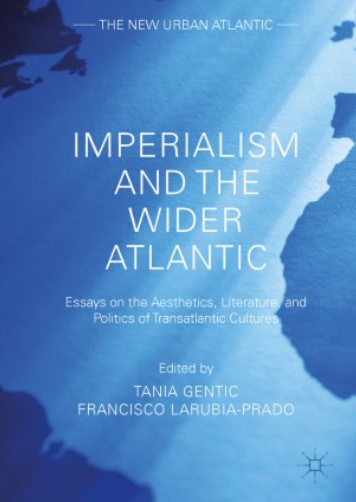
Gentic, Tania. Imperialism and the Wider Atlantic: Essays on Literature, Politics, and Aesthetics of Transatlantic Cultures. Palgrave Macmillan, 2017.
The essays in this volume broaden previous approaches to Atlantic literature and culture by comparatively studying the politics and textualities of Southern Europe, North America, and Latin America across languages, cultures, and periods. Historically grounded while offering new theoretical approaches, the volume encourages debate on whether the critical lens of imperialism often invoked to explain transatlantic studies may be challenged by the diagonal translinguistic relationships that comprise what the editors term the wider Atlantic. The essays explore how instances of inverse coloniality, global networks of circulation, and linguistic conceptualizations of nation and identity question dominant structures of power from the nineteenth century to today.

Lee, Susanna. Detectives in the Shadows: A Hard-Boiled History. Johns Hopkins University Press, 2020.
America has had a love affair with the hard-boiled detective since the 1920s, when Prohibition called into question who really stood on the right and wrong side of the law. And nowhere did this hero shine more than in crime fiction. In Detectives in the Shadows, Susanna Lee tracks the evolution of this truly American character type—from Race Williams to Philip Marlowe and from Mike Hammer to Jessica Jones.
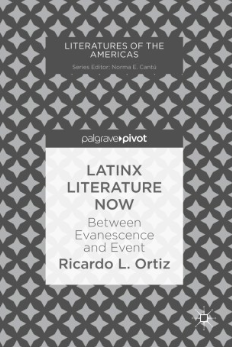
Ortiz, Ricardo L. Latinx Literature Now: Between Evanescence and Event. Palgrave Macmillan, 2019.
Latinx Literature Now engages with a diverse collection of works in Latinx literary studies, critical theory, and the philosophy of history, as well as a wide range of Latinx literary texts, in order to offer readers an alternative model of how Latinx literary scholarship and Latinx literary criticism might go about doing their work. It encourages practitioners in the field to reflect on literature and latinidad together as both parallel and intersecting historical-cultural formations, and to assess from that reflection how literary works might uniquely condition and depict latinidad as something other than a fixed, stable category of identity, as instead an ongoing process of becoming, one always capable of promise, but also always vulnerable to risk, threat, precarity and even disappearance: that is, as always more prone to the performative flash of an evanescence than to the ontological solidity of an event.
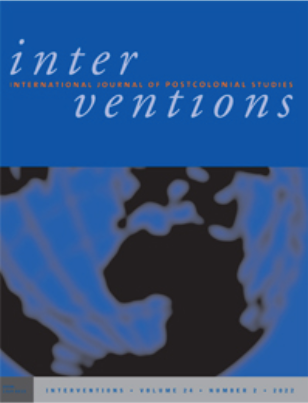
Parsons, Cóilín. “Asymmetries: South Africa, Ireland, and Postcolonial Comparisons.” Interventions: International Journal of Postcolonial Studies, vol. 23, no. 1, 2021.
In introducing this special issue on South African and Irish literature and culture, this essay offers a critical overview of the field of comparisons between these two former colonies. Though the cultural output of both sites is often figured as exceptional or incomparable, there is a constant drumbeat of popular comparisons between South Africa and Ireland, and the disciplines of history, political science, and conflict resolution have long compared Irish and South African trajectories in the twentieth century. This introduction suggests it is time for a more nuanced set of comparative studies that recognize the profoundly asymmetrical relations between South Africa and Ireland, as well as the potential limits of comparative practice, and yet the gains from bringing together two anomalous postcolonial case studies.
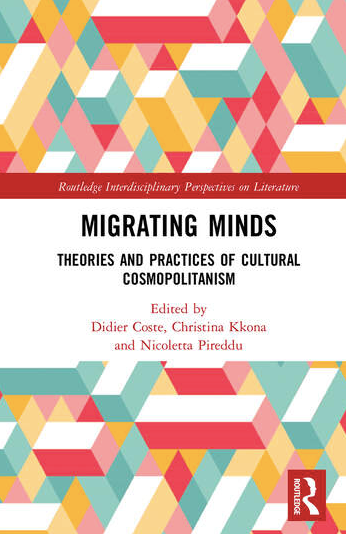
Pireddu, Nicoletta, et al. Migrating Minds: Theories and Practices of Cultural Cosmopolitanism. Routledge, Taylor & Francis Group, 2022.
This book, the recipient of the 2023 René Wellek Prize from the American Comparative Literature Association, contributes to the prominent interdisciplinary domain of Cosmopolitan Studies with 20 innovative essays by humanities scholars from all over the world that re-examine theories and practices of cosmopolitanism from a variety of perspectives. The volume satisfies the need for a stronger involvement of Comparative and World Literatures and Cultures, Translation, and Education Theories in this crucial debate, and also proposes an experimental way to explore in depth the necessity of a cosmopolitan method as well as the riches of cosmopolitan representations.
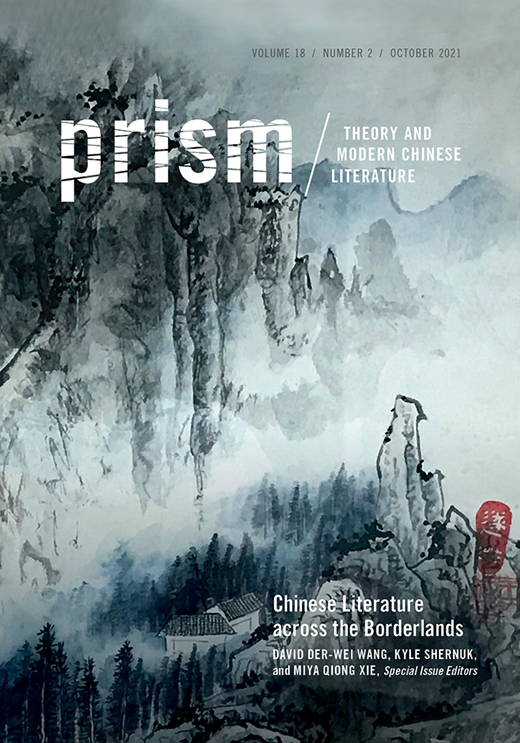
Shernuk, Kyle. “Embracing the Xenophone: Siu Kam Wen and the Possibility of Spanish-Language Chinese Literature ,” Prism: Theory and Modern Chinese Literature 18, no. 2 (Oct 2021): 501-525.
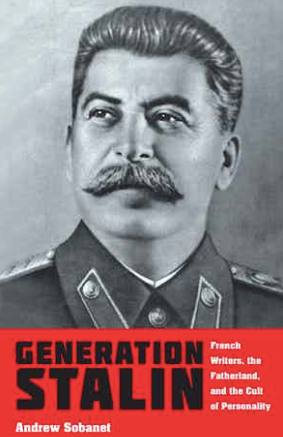
Sobanet, Andrew. Generation Stalin: French Writers, the Fatherland, and the Cult of Personality. Indiana University Press, 2018.
Generation Stalin traces Joseph Stalin’s rise as a dominant figure in French political culture from the 1930s through the 1950s. Andrew Sobanet brings to light the crucial role French writers played in building Stalin’s cult of personality and in disseminating Stalinist propaganda in the international Communist sphere, including within the USSR. Based on a wide array of sources—literary, cinematic, historical, and archival—Generation Stalin situates in a broad cultural context the work of the most prominent intellectuals affiliated with the French Communist Party, including Goncourt winner Henri Barbusse, Nobel laureate Romain Rolland, renowned poet Paul Eluard, and canonical literary figure Louis Aragon. Generation Stalin arrives at a pivotal moment, with the Stalin cult and elements of Stalinist ideology resurgent in twenty-first-century Russia and authoritarianism on the rise around the world.
